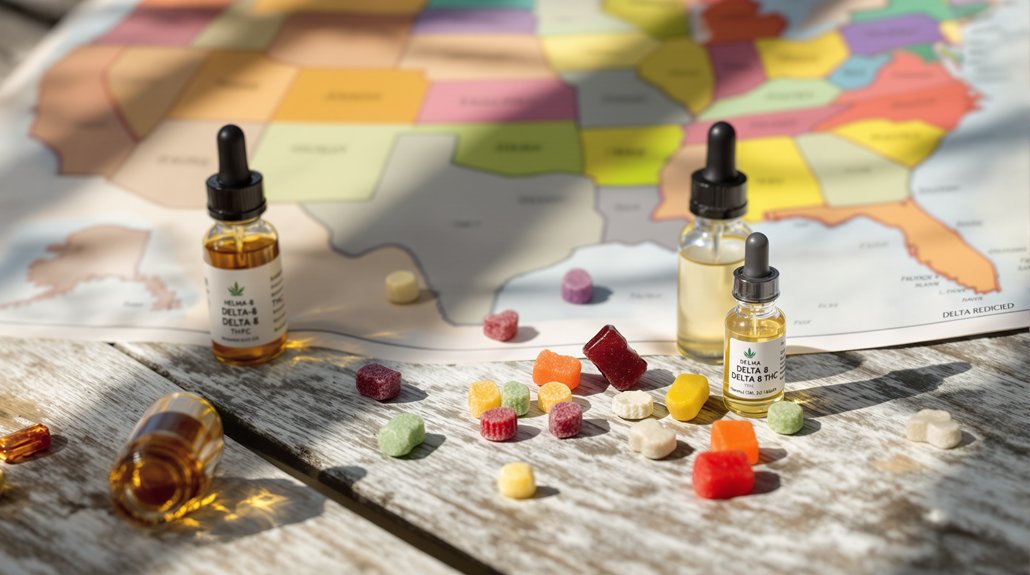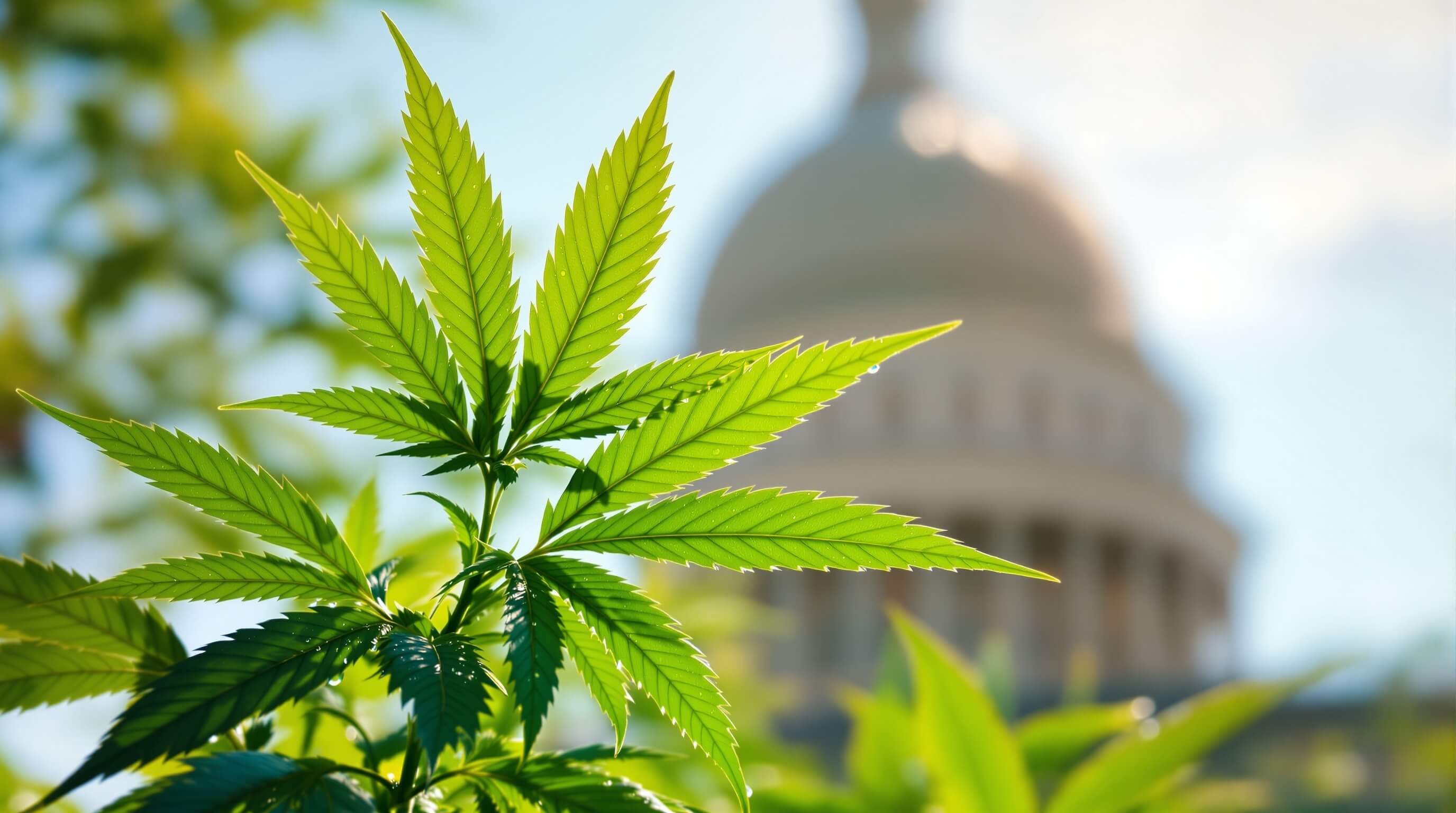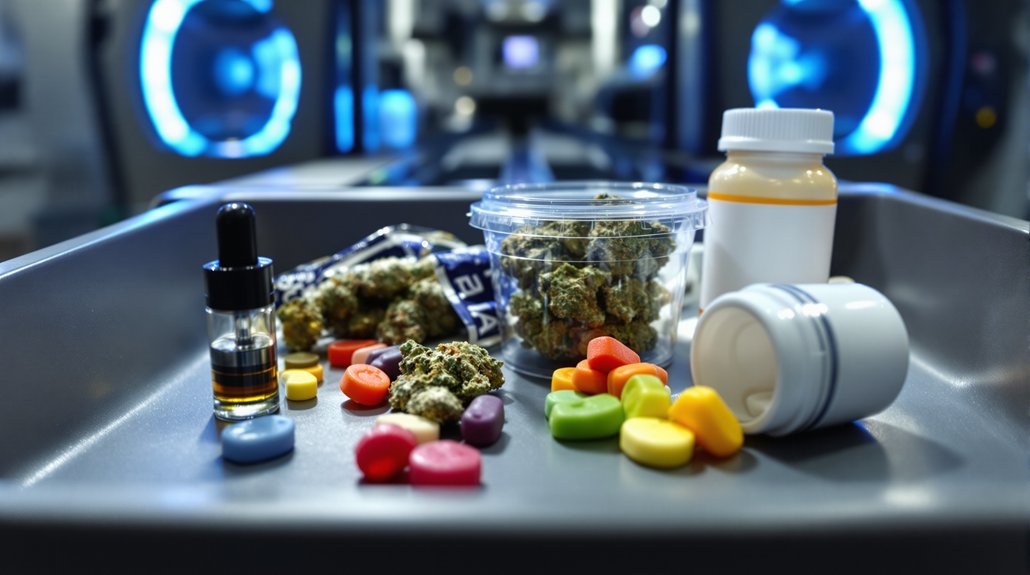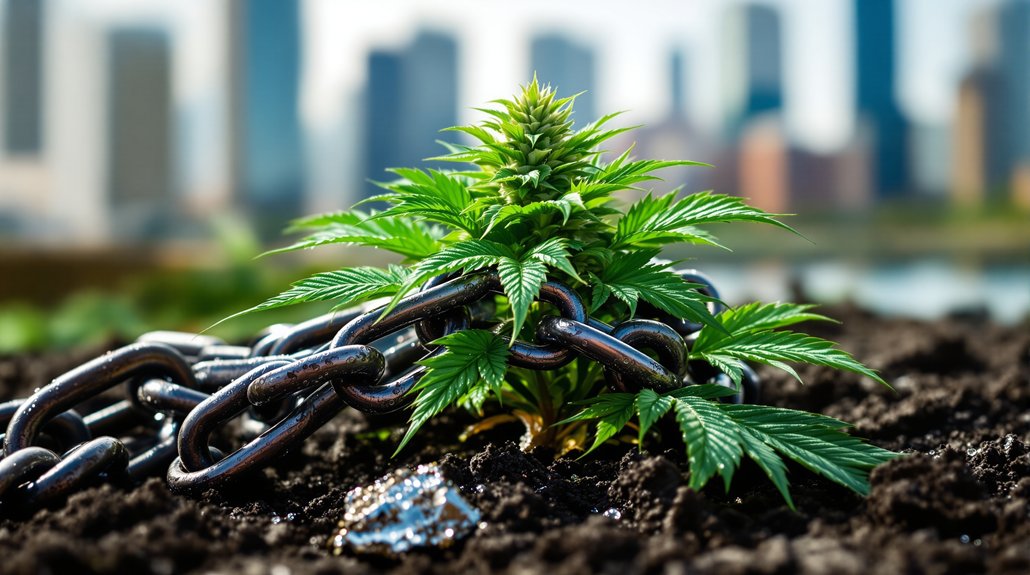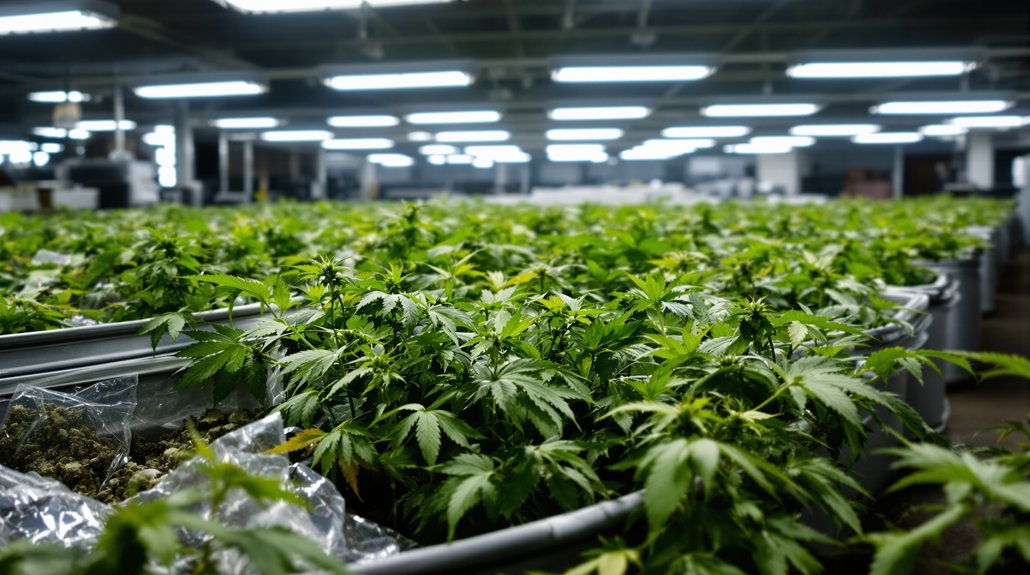Delta-8 THC products are flooding markets in states where traditional marijuana remains illegal, creating an unexpected regulatory challenge for lawmakers and health officials. This hemp-derived compound, which produces milder psychoactive effects than Delta-9 THC, exploits a legal gray area that has allowed manufacturers to bypass existing cannabis restrictions. Adults in prohibition states now consume Delta-8 at rates nearly double those in legal marijuana markets, while products with inconsistent potency and questionable safety standards continue proliferating unchecked.
As traditional marijuana remains federally illegal and prohibited in many states, Delta-8 THC has emerged as a rapidly growing alternative that exploits regulatory loopholes to reach consumers nationwide. Sales of Delta-8 THC have skyrocketed from approximately $200 million in 2020 to nearly $2.8 billion in 2023, creating a massive market that operates largely outside traditional cannabis regulations.
The geographic distribution of Delta-8 usage reveals a striking pattern tied directly to state marijuana policies. Adults living in prohibition states are almost twice as likely to use Delta-8 THC compared to those in states with legal marijuana markets. Specifically, 11% of residents in cannabis-prohibited states have used Delta-8, while only 5.5% of adults in legal marijuana states report similar usage. This disparity highlights how consumers seek alternatives when traditional cannabis remains unavailable through legal channels.
Adults in prohibition states use Delta-8 THC at nearly double the rate of those in legal cannabis markets.
Well-populated prohibition states including Texas, Georgia, North Carolina, Florida, and Pennsylvania represent particularly large and growing markets for Delta-8 products. These regions demonstrate sustained consumer interest in cannabinoid products despite limited access to regulated cannabis, fueling the expansion of alternative markets that operate through legal gray areas.
The regulatory foundation enabling this surge traces back to the 2018 Farm Bill, which legalized hemp-derived products while creating notable gaps in federal and state oversight. States with no Delta-8 regulations experience usage rates of 10.5%, compared to 4.5% in states with bans and 3.9% in regulated markets. Most Delta-8 products are lab-converted from CBD and sold through gas stations and headshops with minimal oversight, bypassing the dose limits and testing requirements that govern traditional cannabis markets.
Regulatory responses vary greatly across states, with 14 states enacting bans or restrictions on Delta-8 THC as of 2025. Texas provides a notable example of regulatory uncertainty, where legislation advanced to ban high-dose hemp THC products, but executive action vetoed enforcement mechanisms, leading to ongoing framework development. The upcoming 2025 Farm Bill update may significantly impact the Delta-8 market by addressing the legal status of hemp-derived cannabinoid products.
Regulators increasingly focus on implementing lab testing requirements, child-resistant packaging standards, and clearer labeling protocols to address safety concerns. Many consumers are drawn to Delta-8 THC because it offers a milder high compared to traditional Delta-9 THC, with fewer anxiety-inducing side effects.
The rapid market expansion creates both opportunities and challenges for industry participants. The Delta-8 market continues reaching all-time highs amid regulatory uncertainty, but businesses operating in gray zones face potential disruption as compliance standards tighten. The industry is experiencing significant consolidation trends as companies with strong balance sheets emerge as leaders while smaller operators struggle to compete.
States implementing stricter hemp rules may provide competitive advantages to licensed cannabis operators who already meet higher regulatory standards.
Public safety concerns drive much of the regulatory scrutiny, particularly regarding unregulated products with inconsistent dosing and inadequate oversight. High-potency edibles and other Delta-8 products often lack standardized testing and accurate labeling, creating risks for consumers who cannot reliably predict product effects.
Market consolidation appears likely as smaller Delta-8 producers struggle with increasing compliance costs and testing requirements. Industry observers anticipate mergers and exits among operators unable to meet evolving standards, while larger companies with resources to guarantee compliance may benefit from reduced competition and mainstream market acceptance.
